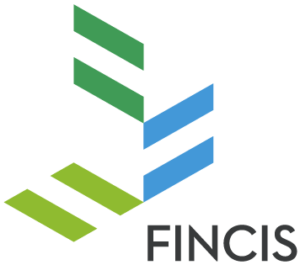Sports academies are committed to the jointly agreed measures for clean and fair sports under the Finnish Olympic Committee's Fair Competition Programme. Specific Fair Competition guidelines have been prepared for sports academies, with the help of which each sports academy plans its actions related to anti-doping activities and the prevention of manipulation of sports competitions. Through the action plan, the sports academy engages and inspires local sports stakeholders to high-quality activities for clean sports and fair competition.
Sports academies play an important role in promoting clean sports and fair competition. For many sports stakeholders, such as young athletes, the first contact with anti-doping activities and the prevention of manipulation of sports competitions can come through the sports academy. Sports academies have the opportunity to reach several target groups regionally, such as young athletes, athletes studying in higher education, coaches and parents.
FINCIS, in co-operation with the sports academies that were part of the pilot group, has issued guidelines for the preparation of sports academies' Fair Competition instructions. Based on these guidelines, sports academies prepare their own operating instructions, taking into account the specifics of the academy and the region in question. It is important that the selected measures are reflected in the annual clock of the sports academy. The implementation of the plan is monitored annually as part of the sports academy’s operational evaluation.
Key points from the Fair Competition guidelines
The guidelines emphasise preventive action, covering in particular measures related to training, communications and contracts. Below are key points from the guidelines. The measures are explained in more detail in the guidelines.
Education
The purpose of education is to ensure that all sports stakeholders have the required up-to-date information about anti-doping matters and the prevention of manipulation of sports competitions, as well as the ability to make ethical choices in sport. Athletes should become familiar with anti-doping activities primarily through education and training. Sports academies must plan education measures on an annual basis, taking into account the different target groups.
Communications
Good activities need visibility. With effective communication, sports academies keep the matters on the agenda, so that athletes and other stakeholders do not forget about anti-doping matters and the prevention of manipulation of sports competitions. When matters are on the table, they become a natural part of the activities and value base, which helps avoid regrettable incidents. Communications also demonstrate the academy’s value base and choices to external audiences.
Codes and contracts
Athletes, coaches and other support persons are obliged to comply with the national anti-doping rules, sport-specific rules, as well as the rules related to various top-level competitions and events. Athletes and their support persons are obliged to know the rules and regulations that apply to them, as well as other contracts and commitments they have made.
Tasks of the sports academy:
- Plan and implement education and training measures
- Coordinate communications within its academy network
- Take matters related to anti-doping and manipulation of sports competitions into account in contract processes
- Report potential doping or competition manipulation violations to FINCIS and help resolve the cases if necessary
Tasks of FINCIS:
- Help the sports academy to implement the Fair Competition guidelines
- Provide material, services and support in education and communication
- Communicate current matters
- Develop policies for the use of the sports academy
Publication of the guidelines
Sports academies are encouraged to publish the guidelines on their own websites. FINCIS publishes the guidelines that are submitted to it on its own website. This way, other sports academies and organisations can find good ideas and new ways of working that they can also implement in their own guidelines.


